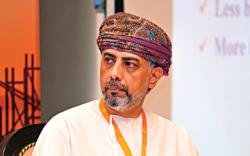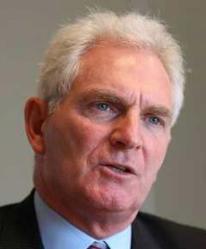

Past Event
Content from the Brookings Doha Center is now archived. In September 2021, after 14 years of impactful partnership, Brookings and the Brookings Doha Center announced that they were ending their affiliation. The Brookings Doha Center is now the Middle East Council on Global Affairs, a separate public policy institution based in Qatar.
The Brookings Doha Center (BDC) hosted a webinar discussion on April 14, 2020 about the economic challenges facing the Gulf Cooperation Council (GCC). Panelists assessed the short- and long-term implications of the pandemic and the sharp fall in global oil prices. The panel consisted of a group of distinguished scholars and experts, including: Hatim Al Shanfari, professor in the Department of Economics and Finance at Sultan Qaboos University; Samantha Gross, fellow in the Brookings Foreign Policy program; and Nasser Saidi, former Lebanese Minister of Economy. Nader Kabbani, director of research at the BDC, moderated the event.
Nasser Saidi opened the discussion by describing the consequences of the recent OPEC+ agreement, which called for major production cuts. Saidi noted that, while the cuts are helpful, they are “too little, too late” and will fail to compensate for excess supply. At this stage, the GCC stands in uncharted waters, as it faces simultaneous crises in the health, trade, and oil sectors. The combination of these three crises has shocked the Arab world, and Gulf countries in particular, in a way that is historically unprecedented. This shock, which will result in large budget and current account deficits, will be difficult to alleviate through stimulus bills, because GCC economies do not have automatic stabilizers. Finally, Saidi added that we are in the midst of a financial crisis and that this will exacerbate the situation, as national sovereign wealth funds will likely take a hit. While some have suggested economic diversification as means to alleviate the present shocks, the non-oil sector will face its own challenges, given significant fiscal cuts.
Samantha Gross continued the discussion, speaking about the future trajectory of the oil market. First, she described how the current crisis has impacted North America, noting that demand for gasoline in the United States is down 50 percent compared to the same time last year — an unprecedented fall. Gross then commented on the OPEC+ agreement, reaffirming Saidi’s pessimism that this intervention will not make much of a difference in oil markets. Prices will have to fall further to force more producers to halt production and balance the market. However, she did note that the deal could at least buy time with respect to crude oil storage, allowing the industry to facilitate an orderly shutdown. Gross added that the period of time during which demand will remain low will depend on how long it takes to control the spread of the virus, expressing concern that this could take a while. She also remarked that, although Gulf producers have some of the lowest production costs in the world, their fiscal budgets depend on much higher prices.
Hatim Al Shanfari outlined how GCC countries can mitigate the impact of the current fall in oil prices, while lowering the risk of future drops. Specifically, he discussed the process of hedging, which involves contracting oil sales at set prices. Mexico has practiced hedging for many years and the strategy has proven very effective in helping the country to weather market turbulence. Because no Gulf countries have engaged in hedging, with the exception of some minor experimentation by Qatar, the oil price drop led to a major financial shock in the GCC. Al Shanfari recommended that Gulf countries consider hedging going forward, explaining that, despite its costliness, it is an effective strategy that allows nations to plan for the future. He also addressed the question of economic diversification in the GCC, saying that, in the short term, the private sector will have difficulty operating due to delayed government payments. In the long-term, Al Shanfari called for a re-imagination of diversification efforts. He argued that current efforts are too closely tied to the oil sector, using Dubai as an example of a highly diversified economy that has still been majorly impacted by the crisis.
In the subsequent question and answer session, panelists focused on the environment, government spending, and sovereign wealth funds. Gross explained that, contrary to popular belief, the current oil crisis may impede a transition to alternative energy sources. New renewable energy technologies require investment, which is currently at a standstill. Al Shanfari stressed that governments should prioritize spending on the health, education, and food sectors. Saidi added that telecommunication and digital industries will likely be bolstered by the current situation and concluded by saying that GCC sovereign wealth funds should redirect external investments in order to revive local markets.




Noha Aboueldahab
August 23, 2021

August 23, 2021

Yasmina Abouzzohour
August 19, 2021